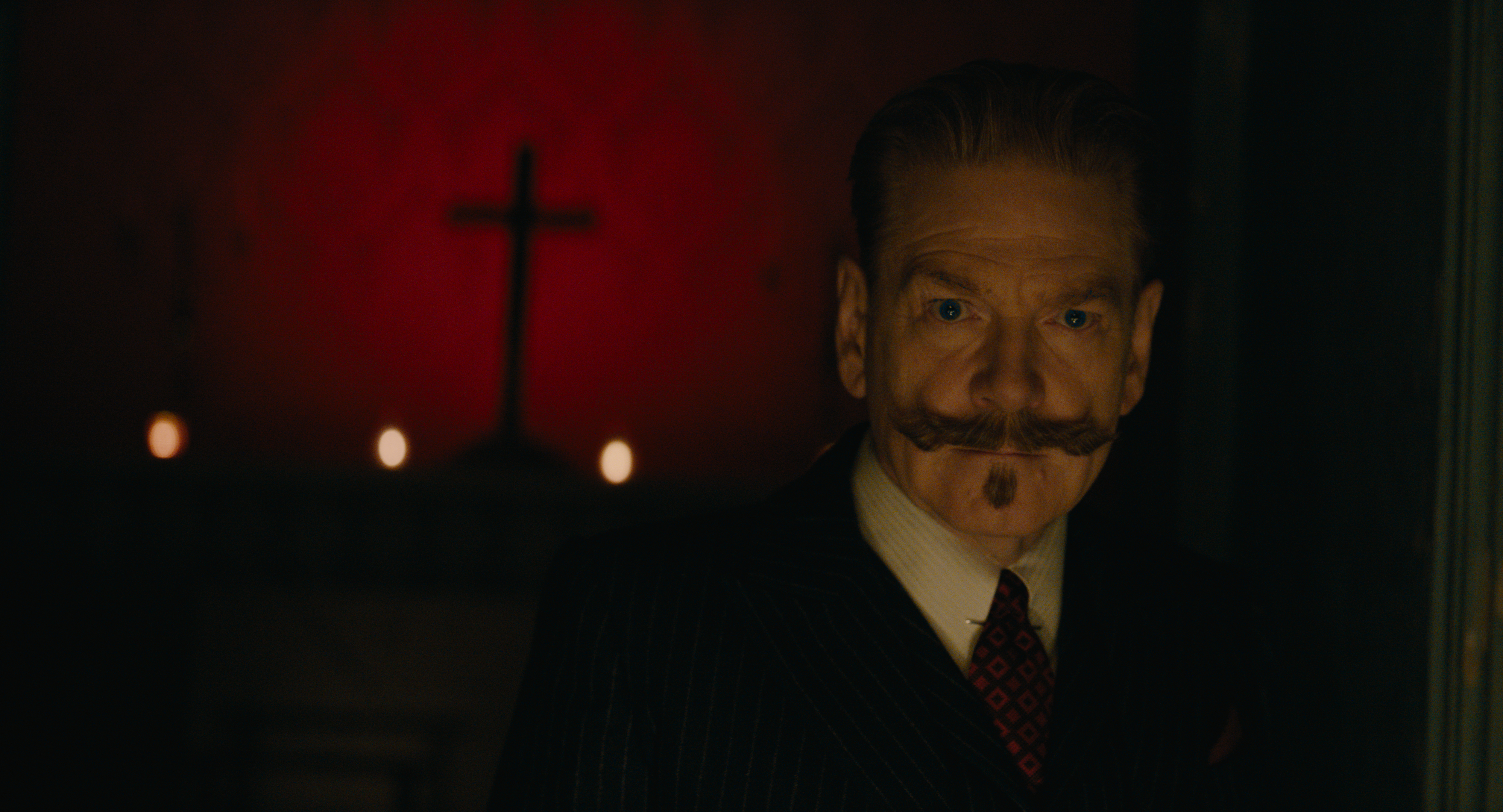Review | A Haunting in Venice | 2023
Kenneth Branagh, the actor/director once known for his cinematic adaptations of Shakespeare, has had perhaps once of the most eclectic careers of any modern filmmaker, transitioning from Shakespeare to Hollywood fare like Jack Ryan: Shadow Recruit and Thor, to Disney adaptations like Cinderella and Artemis Fowl, and more recently to personal Oscar darlings like Belfast, has seemingly settled into a new phase of his career, adapting the works of Agatha Christie for the big screen.
Beginning with Murder on the Orient Express in 2017 and continuing with Death on the Nile in 2022, Branagh has just released his third film as renowned detective Hercule Poirot - A Haunting in Venice. While both Murder on the Orient Express and Death on the Nile had already had star-studded cinematic adaptations in the 1970s, A Haunting in Venice is an adaptation of a lesser known Christie novel called "Hallowe'en Party," published in 1969.For this third outing, Branagh completely changes the game stylistically, departing from the cozy whodunit realm of the previous two films into full fledged horror. Here, Poirot attends a seance led by the mysterious Joyce Reynolds (Michele Yeoh) at the invitation of mystery writer, Ariadne Oliver (Tina Fey), ostensibly to discredit the famous medium. But a murder soon turns the once frivolous case much darker, but the appearance of a seemingly supernatural presence in the house puts everyone on edge, and puts all of Poirot's rational beliefs to the test.
Branagh uses the film's haunting as a kind of metaphor for Poirot's own ghosts. His take on the character is certainly less whimsical than previous screen incarnations (yet not without a certain glimpse of mischief), and while I wish he was willing to dive deeper into the nature of Poirot's ghosts (which are far more interesting than the central mystery), it's difficult not to be enthralled by what the filmmaker has created here. It's such a bold stylistic departure from its predecessors, its grandiose production design far more tangible than the garish CGI of Death on the Nile, that it feels somehow bracing and teeming with a nervous energy that's hard to shake. Branagh feels almost reinvigorated here, and it's rare to see a franchise like this take such a turn in its third entry, but it works - charting a new course for the series while standing alone as its own unique experience separate from its predecessors.
Yet what makes it most intriguing is Poirot's relationship with Fey's Ariadne Oliver, a clear avatar for Christie herself, whose thinly veiled fictionalization of Poirot rocketed them both to unexpected fame. It's clear that Poirot resents Oliver for making him famous in a way that Christie similarly resented Poirot, but they both have a kind of symbiotic relationship in the way they both essentially created each other. It's a fascinating bit of metatextual examination of the relationship between author and character, and while there's certainly unmanned territory still left here, Branagh's take on these texts is becoming more and more interesting. After Death on the Nile I was ready to give up on this new Poirot, but after A Haunting in Venice, I hope he keeps cranking these things out to his heart's content.





Comments